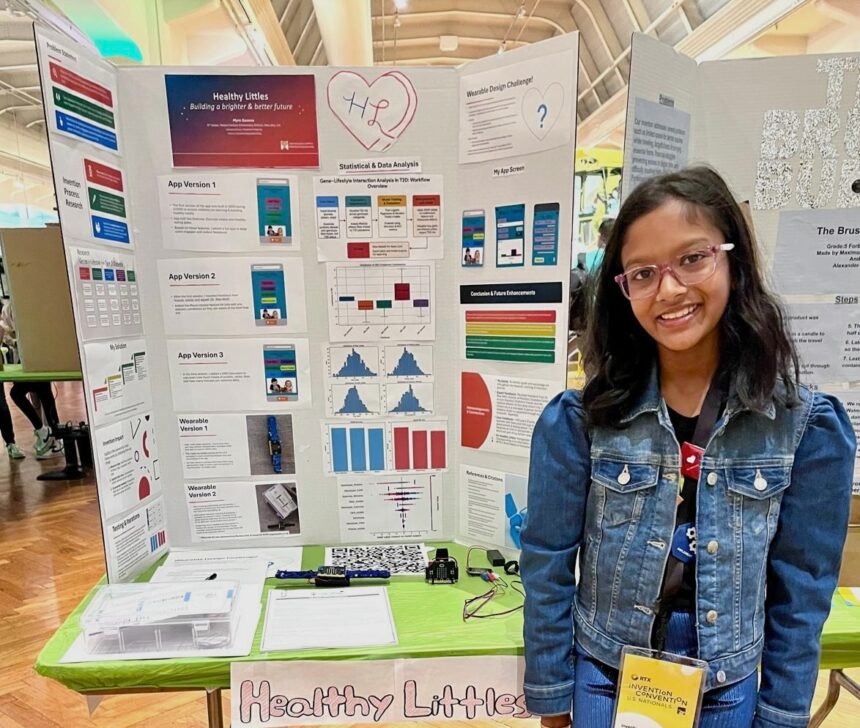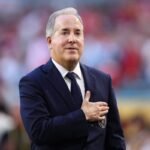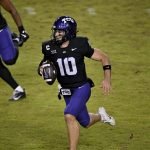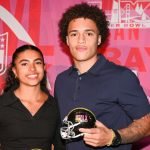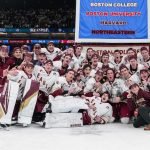When Palo Alto fifth grader Myra Saxena was only 8 years old, she began learning how to code.
Some said she’s too young. But now, as she continues to develop her award-winning health application, Saxena follows her own “coat” or motto, she told this publication.
“Never give up, even if people tell you that you can’t do it or you’re too young,” she said. “It’s never too late or too early to start.”
Saxena, who recently graduated from Herbert Hoover Elementary, was chosen out of 200,000 applicants to showcase “Healthy Littles powered by SmartGenes” – her multi-year developed app and device to prevent Type 2 diabetes in children – at the National Invention Convention in June.
She was the only Palo Alto Unified student out of 490 K-12th graders chosen nationally to attend the convention, with a device inspired by her family.
“I started building this product because I lost my grandpa to diabetes, and this made me want to help kids prevent Type Two Diabetes early,” Saxena said.
Coupled with her interest in coding, Saxena began developing an app that could help children start exercising and understand their diet.
“It developed over many years, with four, five, maybe six prototypes,” said Saxena, who has continued to research childhood diabetes to add more relevant features.
One prototype focused on exercise videos and recipe ideas, but another added body and bone structure study materials and macro-tracking.
Saxena presented her application at a school invention convention, which gave her the confidence she needed to move forward at a regional convention, she said. She was then selected to move on to nationals.
Once she learned that she had progressed, Saxena did not stop refining her application.
“I researched more and learned there’s no way to predict kids’ GRS, their genetic risk score to getting diabetes,” she said.
So she created a wearable prototype called SmartGenes that uses pulse-sensors, to detect heart rate, and health data to analyze a child’s risk of developing diabetes.
Between friends, family and teachers, Saxena has tested her device with over 100 people, she said, including Risa Wolfe, a pediatrician who leads diabetes research with Johns Hopkins Children’s Center.
“She’s an amazing, entrepreneurial, high-tech-building child,” Wolf wrote in a Johns Hopkins statement. “She has the values of kindness and philanthropy in mind from such a young age.”
On top of being recognized at the national convention and collaborating with hospitals like Stanford Health, Healthy Littles won first place at a 2025 global competition for elementary school kids called the World Series of Innovation Imagination League Challenge.
While Saxena hopes to fully buckle down on her application’s development, adding even more features and expanding distribution, she also looks forward to helping local students make similar waves.
Saxena and Brenda Payne, who serves on the Board of Directors for the California Invention Convention, are currently in discussions about creating a regional student ambassador program to help more young learn about invention programs.
Throughout sixth grade, Saxena would help lead the effort. She plans to spread the word about the convention to local school board members, principals, teachers and students.
“Over the years I’ve learned to just keep building,” she said.




